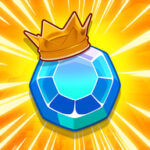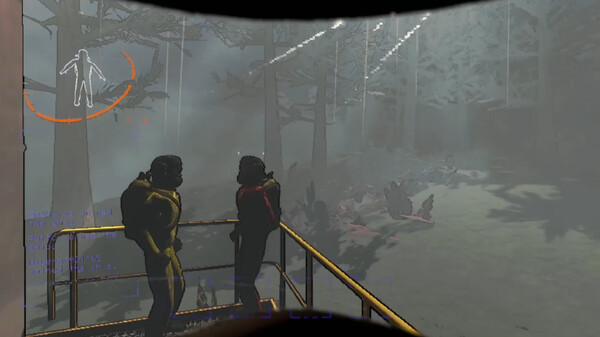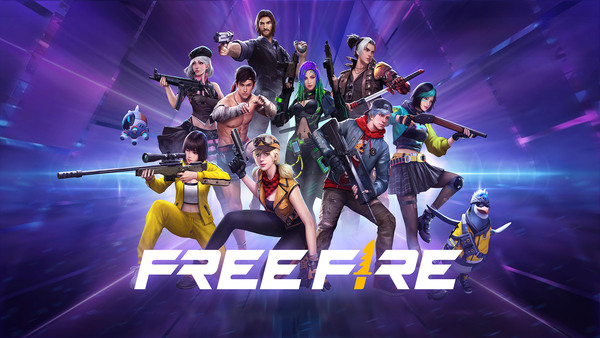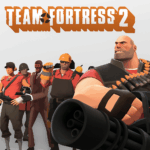DELTARUNE: Exploring the Enigmatic World of Toby Fox’s Follow-Up to Undertale
Introduction
Since its surprise release, DELTARUNE has captivated fans worldwide with its unique blend of storytelling, quirky characters, and innovative gameplay. Created by Toby Fox, the same mind behind Undertale, DELTARUNE presents a mysterious new universe that both builds on and diverges from its predecessor’s themes. In this article, we dive deep into the world of DELTARUNE, examining its development history, gameplay mechanics, story structure, artistic direction, community impact, and much more. Whether you’re a seasoned player or new to the series, this comprehensive guide will illuminate every aspect of this beloved RPG.1. Origins and Development of DELTARUNE
Toby Fox announced DELTARUNE as a project distinct from Undertale, though closely linked in tone and style. The first chapter was unexpectedly released in October 2018 as a free download, sparking widespread curiosity.
The game was developed primarily by Toby Fox himself, with some collaboration on music and art. The early release strategy—dropping chapter one before completing the entire game—was unusual but successful in building anticipation.
The name DELTARUNE itself is an anagram of UNDERTALE, hinting at deeper connections yet distinct narrative directions.
2. Story and Narrative Themes
At its core, DELTARUNE follows Kris, a seemingly ordinary human, who gets drawn into the mysterious “Dark World” alongside classmates Susie and Ralsei. The story unfolds as an epic quest filled with humor, moral choices, and philosophical undertones.
Unlike Undertale, DELTARUNE takes a more structured approach to storytelling, with each chapter designed as a self-contained adventure yet part of a larger overarching plot. Themes of friendship, identity, and choice permeate the narrative, inviting players to reflect on their actions.
The enigmatic tone—combined with cryptic hints—encourages community theories and discussion, deepening player engagement.
3. Gameplay Mechanics and Combat System
DELTARUNE maintains a turn-based combat system reminiscent of Undertale but introduces fresh innovations.
Combat Flow
Players can choose between attacking, using “Act” commands to interact with enemies non-violently, or defending. New additions include party member actions and collaboration moves, adding strategic depth.
Bullet Hell Evasion
During enemy turns, players dodge projectiles in a bullet hell style mini-game. This interactive evasion system demands reflex and timing, enhancing engagement beyond typical turn-based RPGs.
Puzzle and Exploration Elements
Outside combat, DELTARUNE features intricate puzzles and exploration challenges that complement the narrative and world-building.
4. Characters and Their Development
One of DELTARUNE’s greatest strengths lies in its memorable cast.
-
Kris: The silent protagonist, whose ambiguous nature invites player interpretation.
-
Susie: Initially a menacing figure, her character evolves into a complex anti-hero with moments of vulnerability.
-
Ralsei: The kind-hearted guide whose mysterious origins tie closely to the Dark World’s lore.
Supporting characters and antagonists are equally layered, each contributing to the story’s emotional and thematic resonance.
5. Art Style and Music
DELTARUNE embraces a retro pixel art aesthetic, reminiscent of 16-bit RPGs but with modern polish.
Visual Design
The art style balances simplicity with expressive character animations and detailed environments. This blend reinforces the game’s whimsical yet eerie atmosphere.
Music Composition
Toby Fox’s soundtrack is a standout feature, combining catchy melodies with atmospheric pieces that amplify emotional beats. Tracks like “Rude Buster” and “Dark World” have become iconic among fans.
6. Chapter Releases and Structure
As of now, only Chapters 1 and 2 have been released, both free of charge. Each chapter serves as a substantial experience, with:
-
Diverse environments and puzzles
-
Unique boss battles with multiple endings
-
Dialogue choices affecting character interactions and tone
Toby Fox has indicated that DELTARUNE will continue as a multi-chapter series, though no exact release schedule exists.
7. Fan Reception and Community Impact
DELTARUNE was met with critical acclaim and enthusiastic fan support. The community has thrived on sharing theories, fan art, and gameplay strategies.
Online forums dissect story clues, speculating on hidden meanings and connections to Undertale. This vibrant ecosystem has helped maintain the game’s popularity despite the long gaps between chapters.
8. Comparisons with Undertale
Though related, DELTARUNE is distinct from Undertale in several key ways:
-
More linear narrative with defined chapters versus Undertale’s branching endings.
-
Expanded party system rather than solo protagonist.
-
Enhanced combat mechanics and gameplay complexity.
Fans appreciate both games for their unique qualities, often viewing DELTARUNE as a spiritual successor rather than a direct sequel.
9. Final Thoughts and Expert Rating
DELTARUNE stands as a remarkable achievement in indie game design, delivering a fresh take on RPG storytelling and gameplay. Its unique blend of humor, emotion, and mystery keeps players invested and eagerly awaiting new chapters.
While the incomplete nature of the game tempers its full impact, the quality of released content signals a promising future. Toby Fox’s creative vision and dedication continue to elevate the genre.
Conclusion
DELTARUNE is more than just a follow-up to Undertale; it’s a distinct and captivating journey into a mysterious world where friendship, choice, and identity intertwine. With its innovative combat system, memorable characters, and evocative music, it has carved a unique niche in modern gaming. Though still unfolding, DELTARUNE invites players to dive deep into its layers, promising rewards for those who explore its secrets patiently. Whether you are a longtime fan or a newcomer, the world of DELTARUNE offers an unforgettable RPG experience.

































